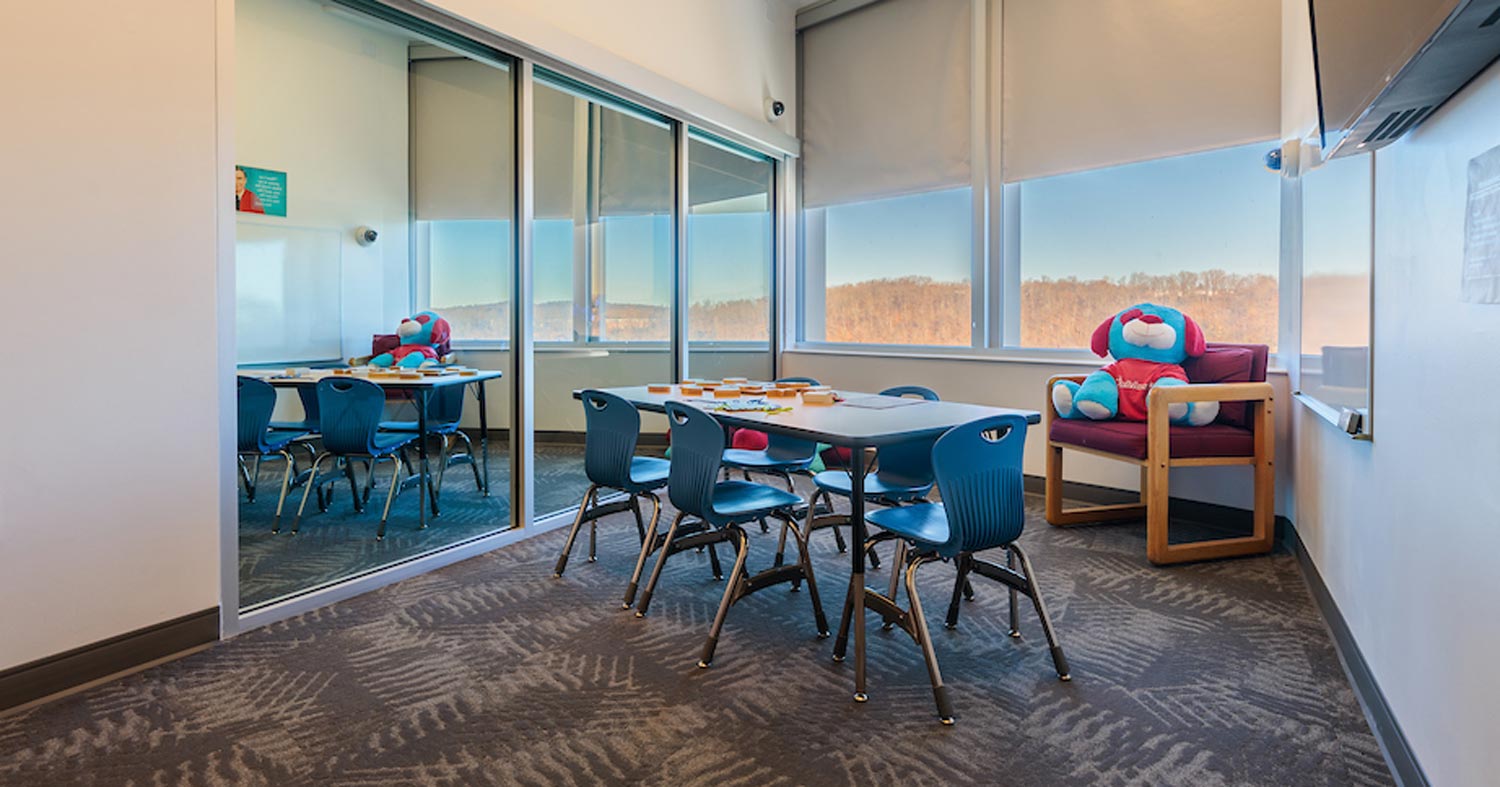Radford University
School Psychology
- Degree Type
-
- Educational Specialist (Ed.S.)
- Location
-
- Main Campus in Radford, VA
- Format
-
- In-Person
The School Psychology program at Radford emphasizes training in comprehensive service delivery and understanding student and family needs. Importance is placed on intervention development and delivery, advocacy and data-driven and ethical decision-making.
You’ll study how to analyze children's learning and behavior to inform interventions that promote child and school success.
Why Study School Psychology at Radford?
- Students may earn both an Ed.S. Degree in School Psychology and an M.S. in Psychology
- You’ll take assessment and intervention classes in cognition, academics, neuropsychology, and early childhood
- We provide two counseling classes that will train you to work with individual students, small groups and to do crisis intervention counseling
- You’ll be well-trained in state-of-the-art practices such as RTI and neuropsychological assessment and intervention.
- Our faculty are school psychologists who have real-life experience working in school districts
- We are one of the few programs that offer a study-abroad option
- The program is recognized by the National Association of School Psychologists as having Full Approval through Aug. 1, 2030.
- View information regarding eligibility for licensure as a school psychologist in other states for those who graduate from the Radford University School Psychology Program.
Careers and Internships
With an increase in students asking for mental health services in school, the need for school psychologists is greater than ever.
The average salary of a school psychologist is $87,550.
We work with students who want to complete their third-year internship in their home state, increasing the likelihood that they will be offered a job there.
To learn more about the work of a School Psychologists access informational videos through the NASP All Access YouTube Channel.
Opportunities for School Psychology students at Radford
You’ll have the opportunity to join the School Psychology Graduate Student Organization (SPGO which is a recognized club at Radford University. SPGO focuses on enlightening undergraduate students and faculty on the roles and responsibilities of school psychologists within the education system. As a part of the organization, you’ll also serve as an organizational structure for arranging trips to conferences and other professional development opportunities. Our organization also may hold meetings to discuss relevant issues to the field, host a guest speaker, and engage in volunteer opportunities on campus or in the community
You’ll also have opportunities to:
- Attend National and State Conferences
- Promote school psychology during School Psychology Awareness Week (SPAW)
- Engage in interprofessional learning experiences.
Speak with undergraduate classes and psychology club about school psychology
- Radford Gives Back
- Develop resource packets for local refugee centers
Other campus activities School Psychology students are involved with:
- Winter Wonderland
- Out of the Darkness Walk
- Bobcat Book Bags Program
Admissions Requirements
Applicants must have at least an overall GPA of 3.0 and be a psychology major or have earned at least 18 hours in psychology (preferred courses include: Tests and Measurement, Child or Adolescent Psychology, Human Development, Statistics, Research Methods, Abnormal Psychology or Exceptionalities, and Learning or Cognition) or the equivalent coursework and work experience as deemed acceptable by the school psychology program faculty.
All application materials are submitted to graduate admissions.
Application deadline is Feb. 1.
A completed application includes:
- Graduate admissions application
- GRE is not required, but optional
- Resume
- Three letters of reference; (one from major department; if the applicant is not a psychology major then a letter of reference from a psychology faculty member is needed)
- Approximately 2-3 page Personal Statement explaining why you are interested in school psychology and your future plans (we do not require a separate writing sample).
- Undergraduate and any graduate transcripts.
- Admissions Interview.
Once complete, the application package goes to the School Psychology Admissions Committee which is composed of the program faculty. Each applicant is rated on five dimensions; GPA, GRE, experience, personal statement, and letters of recommendation. Following the review of all application documents, select applicants will be invited for an interview. These applicants will be further evaluated based on the interview process.
Virginia Department of Education credentials individuals to provide school psychological services in VA schools. State license may be denied for individuals convicted of any felony or any misdemeanor involving moral turpitude or conduct with a direct and detrimental effect on the health, welfare, discipline or morale of students. In addition, many school districts in our area require that students submit to and pass a drug/alcohol screening and criminal background check.
Program Catalog
Center for Assessment and Psychological Services (CAPS)
CAPS provides assessment, consultation, professional development training, and counseling/intervention services for the pediatric through young adult population.

Meet the Faculty
-

Melinda Cruz, Ph.D., LCP, NCSP
Associate Professor
Program Coordinator- Email:
- mcruz10@radford.edu
-
Emily Dove, Ed.S., LSP, NCSP, ABNP
Senior Instructor
CAPS Director and Clinical Supervisor- Email:
- edove3@radford.edu
-
Jennifer Mabry, Ph.D.
Professor- Email:
- jlmabry@radford.edu
-
Eric Mesmer, Ph.D. NCSP
Professor- Email:
- emesmer@radford.edu
Program Highlights
-
1 to 6
1 to 6
student-to-faculty ratio
-
50+
50+
years in existence
-
Hands-on supervised experiences
Hands-on supervised experiences
beginning Spring of first year